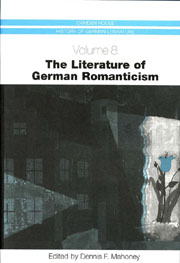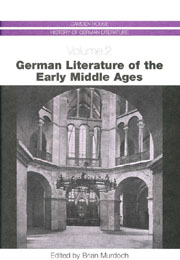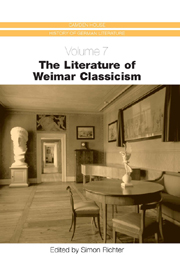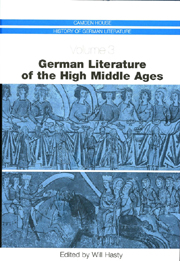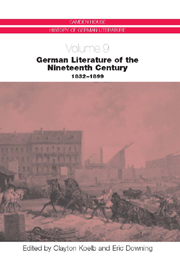The Camden House History of German Literature is a major new reference work, one of the most ambitious undertakings in the field of German literary history in years. The ten volumes will constitute the most detailed history of German literature in the English language, and will make available to scholar, student, and to the general reader a fresh, coherent view of the immense complexity of 1200 years of German literature and culture. The volumes aim to provide an up-to-date assessment of the nature and significance of major works - and many lesser but historically significant or typical works - from the earliest inscriptions and documents to postmodernist literature. Volumes 1 through 9 consist of newly commissioned essays by leading North American and European scholars on major aspects of the literary periods in question. The essays make use of the variety of critical approaches that have evolved in the past two decades, and thus provide a sometimes radical reassessment of the canon, of literary schools and periods. Still, a primary concern of the work is to present pertinent facts about each period of German literary history in an objective manner. The contributors' disparate areas of specialization yield a broad, distinctly interdisciplinary view of literature. Volume 10, 'German Literature of the 20th Century', the first of the volumes to appear, is in contrast to volumes 1-9 a single-author volume. It is written by Professor Ingo Stoehr, editor of the bilingual journal of German literature in English translation 'Dimension2.' The Camden House History of German Literature will rank among the most important literary reference works available today. As a research tool and as a critical history of the entire literature of the German-speaking world, it will be invaluable: essential for academic or reference libraries, for Germanists, and for literary scholars.



